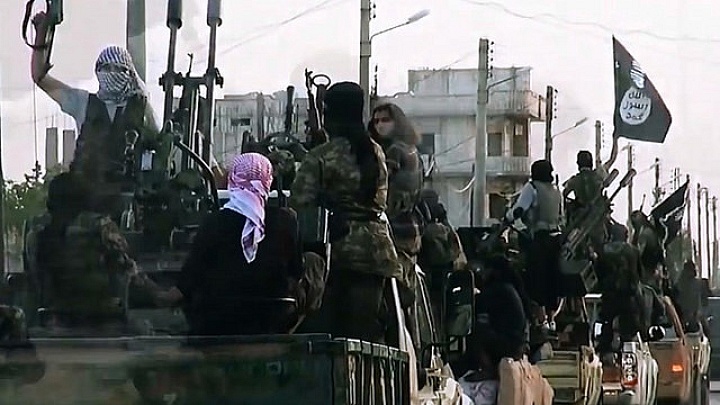
U.S. policy in Iraq is truly perplexing. Like many things President Obama does abroad, he appears to be trying to have it both ways: We are striking ISIS militants, yet also engaging in humanitarian operations near Mount Sinjar. We are intervening to avoid another “Benghazi,” which may take months, yet we are also not becoming Iraq’s de facto air force. We’re helping our Kurdish allies, yet not doing much in the way of forcing Baghdad to change its course. Even if ISIS were wiped off the map tomorrow, Iraq would still be a mess.
To those who have grown hoarse over the past three years calling for some kind of intervention in Syria – limited airstrikes, a no-fly zone, etc. – to prevent the kind of humanitarian disaster, refugee crisis, and bloodbath of innocent Syrians killed indiscriminately by barrel bombs, U.S. airstrikes in northern Iraq are even more perplexing. Most Americans had probably never even heard of Yazidis before last week, and yet Sunday talk shows were lit up with calls to protect this persecuted minority.
The ISIS threat is real. But contrary to fear mongers in Congress, they do not have the capacity to strike us here, much less the intent (yet). Take Senator Lindsey Graham’s comment, “If [Obama] does not go on the offensive against ISIS, ISIL, whatever you guys want to call it, they are coming here.” Really? They’re going to storm Baghdad and Erbil, then hop on a plane and head this way? Yes, we do not want ISIS to gain a foothold in the middle of the Middle East. But the answer was not leaving a few thousand troops stationed in the Green Zone – the answer was preventing Syria from becoming a lawless state three years ago by intervening more forcefully when the opposition was still moderate, less fractured, and had momentum on its side. This could have entailed a limited no-fly zone in Aleppo, Idlib, Raqqa and Deir Ezzor, all places that ISIS has established a toehold in. No, this would not have defeated the regime or prevented the bulk of the atrocities in the Damascus suburbs or Homs. This may not even have prevented the August 2013 chemical attacks. But at least it would have signaled resolve, preempted ISIS’s rise, and prevented the violence from spilling into Iraq and destabilizing its north. Now, Iraqi Kurdistan is seen as a prosperous buffer state to be courted by its neighbors, including even the Turks. ISIS, if it has left any positive imprint on regional politics, has managed to unite a lot of strange bedfellows.
Let’s not scare ourselves into inaction or suggest, as some in Washington have, that ISIS poses some kind of existential threat to the United States or is a bogeyman of bin Laden proportions.
And so nearly a year after President Obama reneged on his “red line” pledge, we are engaging in limited airstrikes and carrying out humanitarian missions to save Iraqi minorities. Yet even this mission appears more aimed at checking a box than actually resolving the ISIS threat (which if I’m Abu Bakr al-Baghdadi, chances are I just cross back into Syria, which is a no-go zone for Americans) – it feels like the work of a reluctant realist, not a liberal interventionist. The trouble with such humanitarian missions is that our resolve does no
